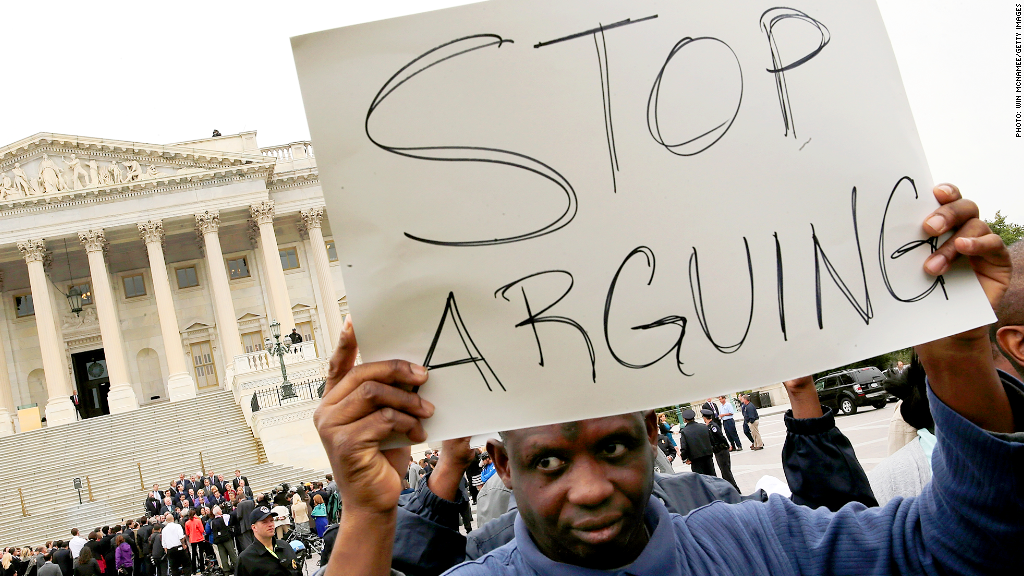
There's still a lot of confusion about what October 17 represents when it comes to the debt ceiling and the risk of a U.S. default.
First, make no mistake. Congress should have raised the debt ceiling weeks if not months ago.
But it didn't and now there's a big deadline approaching. It just might not be October 17.
Here's what the Treasury Department has said: The 17th is the day by which it will run out of "legal and prudent" accounting maneuvers to keep the country below its borrowing limit, while still paying all the bills in full and on time.
And here's what that means: Even if Congress doesn't raise the debt ceiling in the next week, Treasury in all likelihood could continue to pay bills in full beyond the 17th -- but not for very long.
Why? Because at that point, it will be using the estimated $30 billion in cash it will have on hand, plus whatever daily revenue comes in. It will no longer be able to borrow to make up the difference between expenses and revenue.
Holy moly day: The true cash crunch will come sometime between October 22 and November 1, according to estimates by the Congressional Budget Office and the Bipartisan Policy Center.
It's impossible to say precisely which day because payments due and revenue inflows are uneven and hard to predict.
But when that day comes, the United States faces the prospect of willfully defaulting on some of its legal obligations for the first time ever.
Its obligations are vast. They include payments of interest on U.S. bonds, federal workers' salaries, federal contractor bills, Social Security benefits and military pay.

Default defined: The White House defines default broadly -- missed or delayed payments on any legal obligation.
Some Republicans define it narrowly -- not paying interest owed to bondholders. In this sense, they say there's no reason for the United States to default even if the debt ceiling isn't raised.
Indeed, in that situation, most people expect that Treasury will do everything it can to prioritize interest payments, for which it should have sufficient cash to pay interest.
"But there's heightened risk of a mistake once Treasury loses all margin for error. We will thus see more stress in financial markets," said Donald Marron, former director of the Congressional Budget Office in an online discussion.
While those risks are still small, Marron thinks they would rise.
The stakes: What's not clear is how the stock and bond markets will respond if Treasury pays bond interest first, but then tells large segments of Americans they will have to wait for the payments they're due.
If that kind of situation persists for any length of time, the U.S. economy would suffer.
So, the question, then, should not be: "Is the deadline to raise the debt ceiling really October 17?"
The question is: Why does anyone think it's a good idea for the world's largest economy with the world's most liquid markets and reserve currency to flirt with the risk of default, however it's defined?






